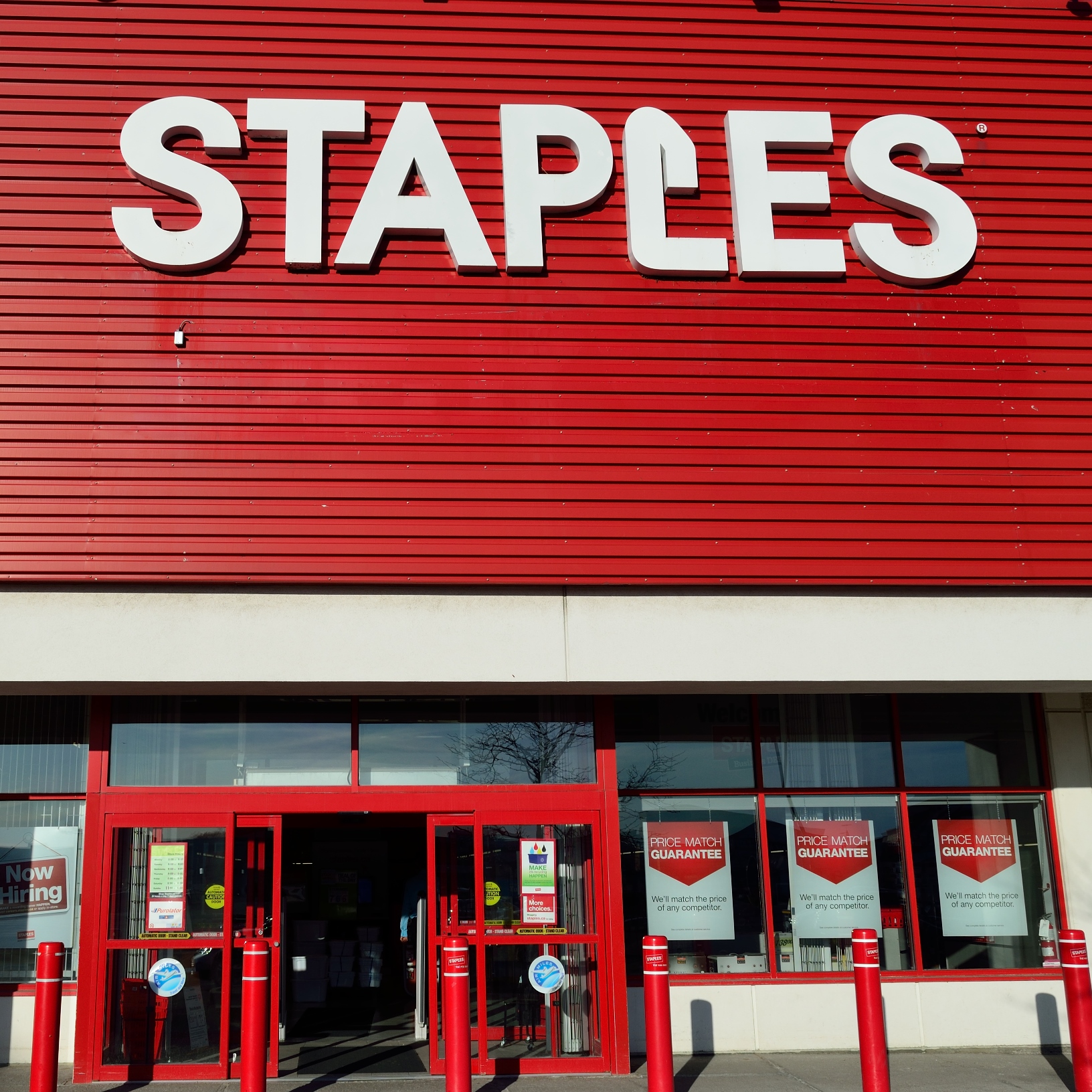
Last December, the Federal Trade Commission (FTC) filed suit to prevent the proposed merger between office supplies companies Staples Inc. (NASDAQ: SPLS) and Office Depot Inc. (NASDAQ: ODP). The two companies issued a letter to customers Monday morning challenging the reasoning behind the FTC lawsuit.
The companies’ timing of the letter coincides with the beginning of the hearing in federal court on Monday. In the letter, Staples and Office Depot go on the attack:
The FTC’s actions to stop this transaction are based on a flawed analysis of the marketplace and a deep misunderstanding of the competitive landscape. The FTC has cherry picked a few facts to fit its narrative and support its case. In making its case, the FTC refuses to even acknowledge the rise of new competitors, such as Amazon, and the disruptive effects of the digital economy.
In brief filed on February 19, the FTC focused on the two companies as providers of goods to at least 79% of the market for business-to-business customers in the United States, including 94 of the firms listed on the Fortune 100. As it stands now, the two firms compete against one another for business, and the FTC says in its brief, “Bid data show that Staples and Office Depot most often win from, and lose to, each other.”
And as far as competition from Amazon.com Inc. (NASDAQ: AMZN) is concerned, “Amazon Business is not a significant competitor for large [business-to-business] customers ….” The rest of the sentence is redacted on the FTC website.
In a section of the brief titled “Amazon Cannot Constrain A Post-Merger Staples,” the FTC says:
Amazon’s business model would make it particularly difficult for Amazon to offer on a consistent basis the types of services and negotiated pricing terms that large [business-to-business] customers require. More than [redacted] of Amazon’s offerings are from third-party sellers on the Amazon marketplace.
Staples has agreed to divest more than $550 million of its wholesale business, approximately half of which is generated from Fortune 500 companies and a quarter from Fortune 100 companies. The company’s total reported revenues in the 2015 fiscal year were $21.06 billion.
What may work in favor of the merger is the FTC’s own reasoning in the Office Depot-Office Max merger. In that case the FTC decided that retail pricing of office supplies was no longer a function of the number of local big-box office supply. Either prices were set nationally or, if prices were locally set, the big-box store pricing was taken into account. But will the court extend this administrative decision based on retail sales to a judicial opinion based on business-to-business sales?
After an initial lift when the deal was first announced in February of 2015, arbitrageurs are maintaining an arm’s-length relationship with Office Depot stock, which has posted a 52-week high of $5.78, after an initial jump to a high of nearly $10 following the merger announcement. The original offer included $7.25 in cash and 0.2188 shares of Staples stock for each Office Depot share. At Staples closing price of around $19 on the day before the merger announcement, the total offer for Office Depot amounted to more than $11 a share.
Office Depot shares opened at $5.73 Monday morning but had fallen 1.5% by late morning. The stock’s 52-week range is $4.83 to $9.44.
Travel Cards Are Getting Too Good To Ignore (sponsored)
Credit card companies are pulling out all the stops, with the issuers are offering insane travel rewards and perks.
We’re talking huge sign-up bonuses, points on every purchase, and benefits like lounge access, travel credits, and free hotel nights. For travelers, these rewards can add up to thousands of dollars in flights, upgrades, and luxury experiences every year.
It’s like getting paid to travel — and it’s available to qualified borrowers who know where to look.
We’ve rounded up some of the best travel credit cards on the market. Click here to see the list. Don’t miss these offers — they won’t be this good forever.
Thank you for reading! Have some feedback for us?
Contact the 24/7 Wall St. editorial team.
 24/7 Wall St.
24/7 Wall St.



